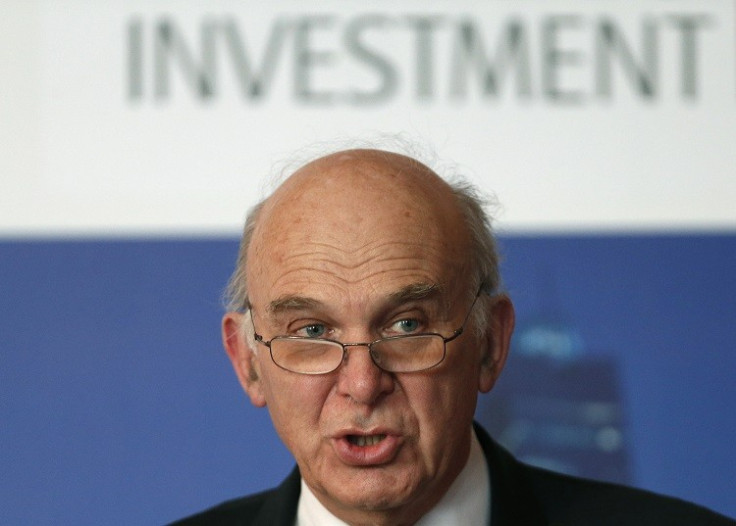Royal Mail Shares: Vince Cable Defends Goldman Sachs and UBS-Backed Offer Price

Business Secretary Vince Cable has written to MPs defending the price at which Royal Mail shares were sold off just as they touched the 500p mark - a whopping 51% rise on the offer price.
Under the government's share offering, Royal Mail shares were sold to retail and institutional investors at an offer price of 330p. This was the top end of the recommended price range suggested by the two investment banking giants assisting the government in the sale, Goldman Sachs and UBS.
Since the stock was allowed to be traded on 11 October, Royal Mail's share price has rocketed, leading to criticism that the government undervalued the firm and cost taxpayers hundreds of millions of pounds in potential revenue.
"Delivering value for money is about more than just the level of proceeds received on day one," wrote Cable to parliament's business select committee.
"Our long-term strategy to safeguard the universal service and deliver value for money for the taxpayer involves not only getting good value for the initial stake sold but also getting good value for the residual stake held by government (30% of the Company assuming exercising in full the Over-allotment Option), and leaving Royal Mail in a strong, sustainable position capable of accessing the capital markets in the future."
Cable appeared in front of the committee on 9 October and is due up again in November.
His letter said the process of valuation ahead of the flotation "comprised a combination of rigorous market testing and extensive analysis of comparable companies in the sector."
This process - including its "Global Coordinators" Goldman Sachs and UBS (GloCos) - included meeting with the institutional investors likely to buy Royal Mail shares.
"Given final demand indications from the GloCos, it was agreed that 330p was an appropriate valuation of our shareholding," wrote Cable.
"This was endorsed by Lazard," the government's independent adviser.
He also admitted that he had, late on, considered a higher offer price - but decided against it.
"Revising the price range upwards late in the bookbuild was considered given the demand generated," Cable wrote.
"However this was not pursued based on an assessment of the composition of demand in the order book and an assessment of where demand would taper off, especially from informed potential long-term investors."
CWU Strike
Ahead of the Royal Mail sell-off, investors were able to apply for up to £10,000 worth of shares at a price of 330p. The share offering was over-subscribed, though 95% who applied got at least the £750 minimum investment's worth of 227 shares.
Royal Mail staff were allocated 10% of Royal Mail shares. Of the rest made available, 67% were for institutional investors and 33% for retail investors.
The flotation has not been without its issues. Aside from the debate over the offer price, many retail investors have complained about not yet receiving their share certificates, leaving them unable to sell their holding and capitalise on the surge in value.
Moreover, those who had originally applied for an amount of shares above what they were eventually allocated are awaiting the return of the difference in amount. The money to be returned by 21 October is being held by the government in an account on which it is making interest.
Unions have opposed the privatisation over concern at potential job losses and a worsening in working conditions.
The Communication Workers Union (CWU) balloted its members on strike action and more than three quarters of the 72,019 polled backed a walk out.
A strike is set for 4 November unless Royal Mail bosses and the union can agree a deal.
"We have said from the beginning that we want an agreement and we still do. The question now is whether this privatised Royal Mail still wants an agreement," said Dave Ward, CWU deputy general secretary.
"We have offered the company a two-week period to reach an agreement and having already had many hours of negotiation, this is achievable if there is a will. The clock is ticking for both sides and we need Royal Mail to work to reach agreement before this deadline.
"What we want is a groundbreaking, long-term, legally binding agreement that not only protects postal workers' job security, pay and pensions - but will also determine the strategy, principles and values of how the Royal Mail Group will operate as a private entity.
"This means there will be no further breakup of the company, no franchising of individual offices or delivery rounds, no introduction of a cheaper workforce on two-tier terms and conditions and no part-time industry."
© Copyright IBTimes 2025. All rights reserved.






















